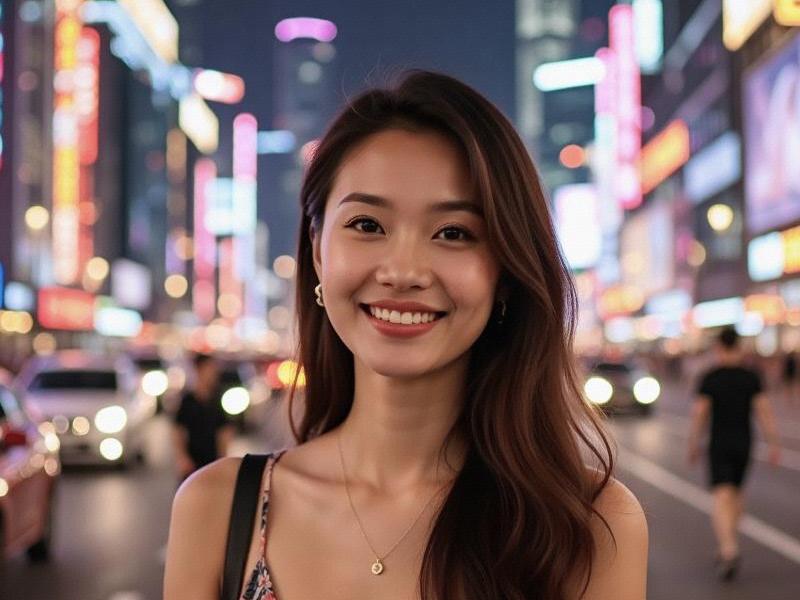This investigative report explores how Shanghai’s entertainment industry is adapting to shifting economic and cultural dynamics, blending traditional Chinese aesthetics with global influences to redefine urban nightlife in China’s financial capital.

The Rise of Hybrid Venues
In the heart of the former French Concession, "Jade Dragon Lounge" exemplifies Shanghai’s new wave of entertainment spaces. Opened in 2023, this ¥120 million venue combines 1930s Art Deco design with holographic technology, hosting Peking opera performances alongside EDM DJ sets. General Manager Li Wei notes: “Our members want cultural depth with modern luxury – 70% of bookings come from multinational corporate events.” The venue’s signature “Silk Road” cocktail menu fuses baijiu with Middle Eastern spices, reflecting Shanghai’s globalized palate.
Economic Powerhouses
Shanghai’s nightlife economy generates ¥87 billion annually, with high-end clubs contributing 38% of revenue. The newly opened "Cloud 88" in Lujiazui charges ¥288,000 for annual VIP memberships, offering private cryptocurrency trading lounges alongside champagne bars. “Our clients discuss IPOs between KTV sessions,” says hostess Zhang Meili, a former investment banker. The municipal government reports entertainment venues created 92,000 jobs in 2023, with 68% in tech-enhanced roles like AI mixologists and VR experience curators.
Cultural Preservation Meets Innovation
爱上海同城对对碰交友论坛 At "Memory Lane Teahouse Club" in Hongkou, third-generation owner Wang Jian revives 1940s Jewish refugee jazz traditions. The venue’s "Time Capsule Nights" feature live recreations of 1930s Shanghai cabarets using AI-generated projections of historical performers. “We’ve digitized over 200 hours of archival footage,” Wang says. The club collaborates with Shanghai Conservatory to preserve endangered instruments like the qinqin, blending their sounds into electronic music tracks.
Regulatory Reshaping
2023’s "Night Economy 2.0" regulations have transformed operations. Venues must now close by 2 AM, but receive tax breaks for cultural programming. Inspector Zhao Qiang of the Shanghai Cultural Bureau explains: “We’ve certified 47 ‘Heritage Clubs’ that dedicate 30% of floor space to traditional arts.” The crackdown on lavish spending by public officials has conversely boosted family-friendly venues, with 62 new “KTV+” complexes offering coding workshops alongside karaoke.
Tech-Driven Experiences
上海龙凤论坛爱宝贝419 Pudong’s "Neon Future Arena" leads Shanghai’s digital nightlife revolution. Patrons equipped with AR glasses dance alongside holograms of 1920s Shanghai socialites. CTO Xu Hao demonstrates their blockchain membership system: “Each drink purchase mints an NFT that unlocks historical content about Shanghai’s jazz age.” The venue’s AI bartender, programmed with 10,000 cocktail recipes from 1930s mixology manuals, serves 1,200 drinks nightly.
The Wellness Shift
Affluent consumers are driving demand for “healthy hedonism.” The Bund’s "Oxygen Lounge" offers vitamin IV drips alongside craft cocktails, while "Zen KTV" provides sound therapy sessions between pop ballad performances. “Our ¥18,000 ‘Detox Package’ includes infrared sauna sessions and personalized TCM tea blends,” says wellness director Dr. Emma Zhou. Industry reports show wellness-focused venues grew 140% in 2023, capturing 28% of high-end spending.
Underground Renaissance
上海花千坊爱上海 Despite regulations, experimental spaces thrive in converted factories. Minhang District’s "Steel Lotus Collective" hosts augmented reality poetry slams in a former machinery plant. Founder Lin Xia, a Fudan literature graduate, says: “We’re reviving Shanghai’s 1980s underground art scene through tech – last month’s NFT graffiti auction drew 3,000 attendees.” Police have tolerated these venues under a new “creative zone” policy aiming to boost youth entrepreneurship.
Global Influences
Shanghai’s club scene increasingly mirrors global trends. The new "Mystic East" franchise from Ibiza pioneers “sleep concerts” where patrons nap in ergonomic pods to AI-composed lullabies. Meanwhile, "Huangpu Noir" combines New York-style speakeasy aesthetics with Jiangnan garden design, its entrance hidden behind a moving calligraphy wall requiring WeChat mini-program access.
As Shanghai positions itself as a 24-hour global city, its entertainment industry continues evolving – preserving whispers of 1930s jazz ballrooms while embracing blockchain and AI. From partying executives sealing deals in VR-equipped lounges to students reviving underground art movements, Shanghai’s nightlife remains a dynamic mirror of China’s social and economic transformation.